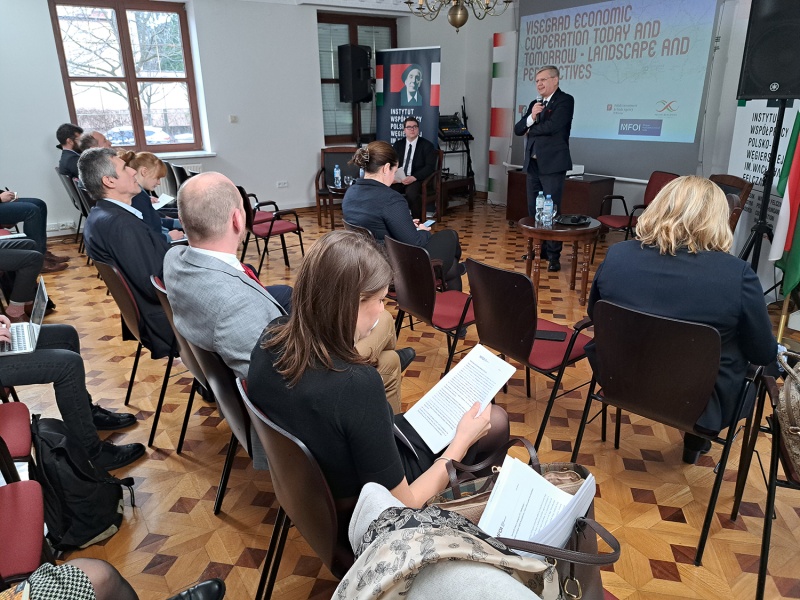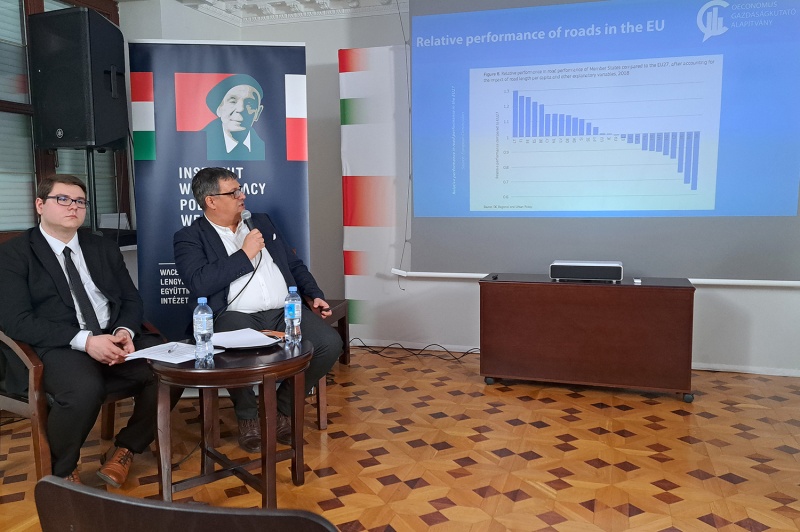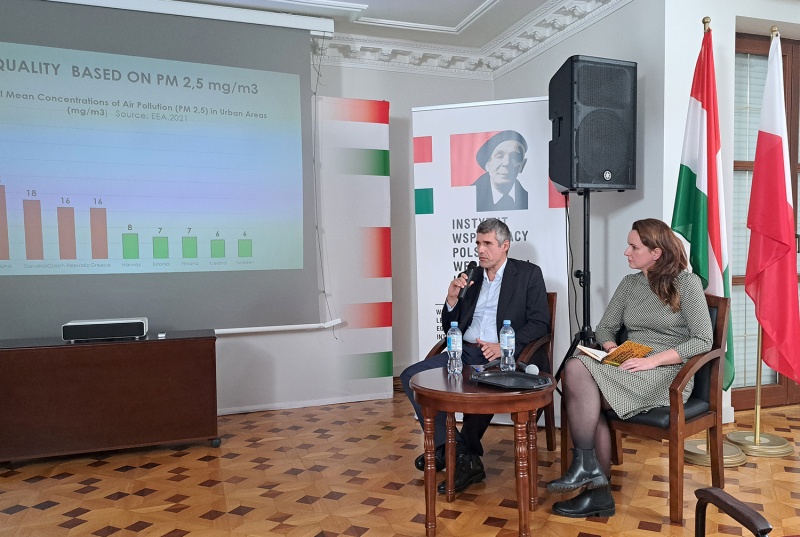On November 29, 2023, a significant conference unfolded at the Warsaw headquarters of the Wacław Felczak Polish-Hungarian Cooperation Institute. Titled "Economic Cooperation of the V4 Countries – Perspectives and Future," the event delved into discussions on the collaborative economic efforts among the V4 nations.

Photo by GK
"I am very pleased that this is already another international conference at the Felczak Institute. The last time we talked about defense, and now it's time for the economy," noted the Hungarian Ambassador to Poland. Orsolya Zsuzsanna Kovács reminded that as early as 1335, a historic meeting of kings took place in Visegrád during which discussions included topics such as the economy and infrastructure, contemplating, for example, how to improve the roads connecting the countries in the region. - Unfortunately, today, the train journey from Krakow to Budapest takes the same amount of time as it did a hundred years ago. This is a significant obstacle to the development of small and medium-sized businesses - the Hungarian diplomat said.
"Trade, investment, infrastructure, innovation, education, and so on— a plethora of very important topics. On behalf of the Felczak Institute, I would like to extend a warm welcome to you at the conference," said Director of the Felczak Institute. Maciej Szymanowski noted that both the title and the timing of today's conference are not accidental. - A few days ago, a meeting of the Visegrád Group presidents took place in Prague, and information related to the economy is crucial for cooperation within the V4 framework - he emphasized.
Trade, investments, and cooperation in the V4
The first panel - "Trade, investments, and cooperation in the V4" - was moderated by Máté György Vigóczki from Mathias Corvinus Collegium (MCC) in Budapest.

Anna Skarzyńska-Zientak (in the middle). Photo by GK
"Currently, our chamber has nearly 70 members," noted Anna Skarzyńska-Zientak from the Polish-Hungarian Chamber of Commerce based in Krakow, reminding that from 1939 to 2019, when 15 companies decided to establish the Polish-Hungarian Chamber of Commerce, there were no such organizations in either Poland or Hungary. "We are an absolutely apolitical organization, and the activities of our chamber are focused on entrepreneurship and cooperation with business-related organizations," added Anna Skarzyńska-Zientak. And she added that the period of the pandemic, rampant inflation, and war in Europe is a tremendous challenge. Paradoxically, these difficult global conditions bring entrepreneurs closer together," noted the representative of the Polish-Hungarian Chamber of Commerce.

Photo by GK
Mikuláš Zeman from the Czech National Bank pointed out the difficulties still faced by the EU, especially the eurozone. He warned that a recession could still affect many countries, especially those dependent on imports from Germany. Zeman emphasized that, in his opinion, it would be more advantageous for the Czech Republic, Hungary, and Poland to retain their own currencies. He disagreed with the view that adopting the euro would help in a more effective fight against inflation.
Viktória Lilla Pató from the Hungarian Office for the Promotion of Development noted that while there are many opportunities to obtain funding for various projects, many of them do not pass verification because they do not meet formal conditions.
Robert Zając from the Polish Agency for Investment and Trade, in turn, pointed out the tremendous economic growth that has taken place in the Visegrád Group countries over the last three decades. He noted that in terms of development pace since 1991, V4 countries have been among the global leaders.

The conference was opened by the host of the event, Illés László Katona, a scholarship recipient of the Mathias Corvinus Collegium in Budapest at the Felczak Institute. Photo by GK
The second part of the conference, titled 'The Role of Infrastructure and Connectivity in V4,' was moderated by Illés László Katona. Panelists included Ágnes Vass from the Hungarian Institute of Foreign Affairs, István Loránd Szakáli from the Oeconomus Economic Research Foundation, and Alexander Škurla, an expert in investments and infrastructure.
Vass stressed the need for improved infrastructure and connections between V4 countries to foster economic cooperation. Szakáli highlighted the importance of V4 collaboration and emphasized historical trends in road construction. Škurla underscored the significance of projects like Via Carpathia.

Photo by GK
The discussion covered potential institutionalization of V4 cooperation, electromobility, and the advantages of North-South road construction for regional connectivity and economic growth. Despite economic benefits, speakers noted the necessity of political will for successful long-term projects.
In the conference's final segment, Zoltán Pogátsa presented a lecture on 'Education, Innovation, and Economic Development in Central and Eastern Europe – A Look into the Future'.

Photo by GK
(J)
